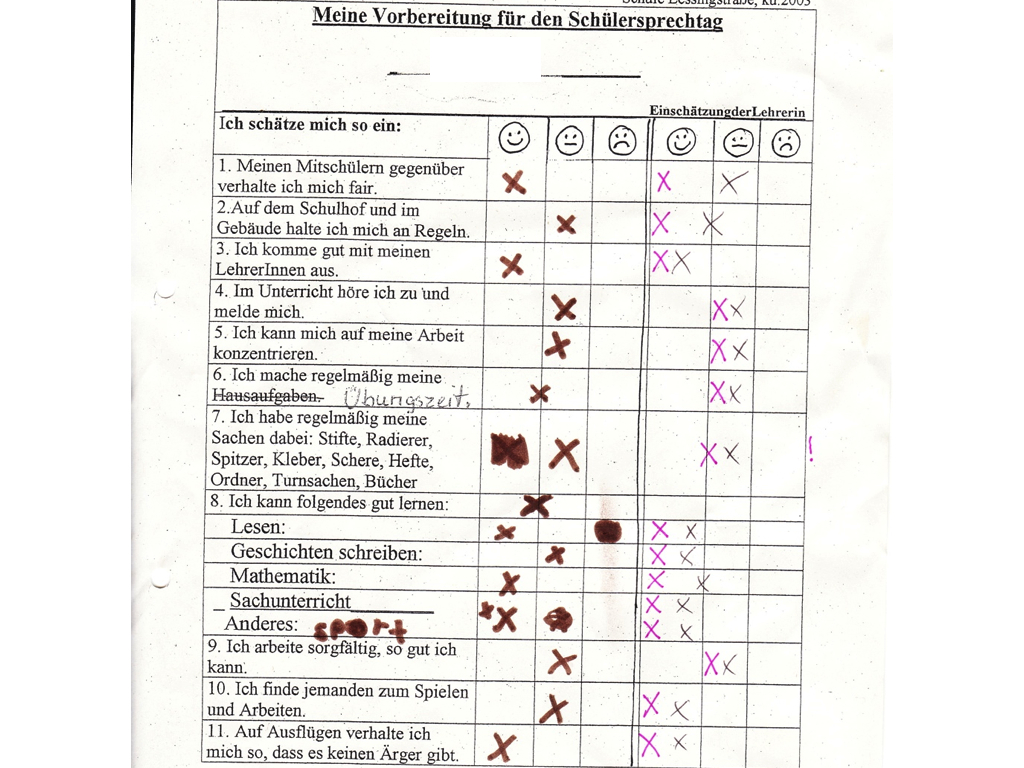Self Evaluation or Assessment – it isn’t hard
I have written many times about Assessment for Learning and the self assessment or evaluation of learning. Assessment for Learning is the idea of formative assessment to support the learning process, rather than most of our present assessment systems which are designed to support comparisons or as a screening mechanism for entry into higher education or education and training or into employment.
And self evaluation – it is what it says. The idea that learners are able to evaluate or assess tehir own learning, often with a surprising degree of insight and accuracy. Of course when they do this they own the assessment – it ceases ot be something that is done ot them but is part of their own reflective learning process.
But, say teachers, this is hard to do. Learners will not know how to do it. they will over-rate their own abilities.
So practical examples are always welcome and I was lucky enough to see today the self evaluation of one of my friend’s children in a school in Bremen (reproduced above).
The process went something like this. Last week the students – aged 8 – were asked to fill in their own assessments in the left had column. Then the sheets were passed to their two form teachers who also filled in the assessment in the right hand column. And then today there were individual meetings between teachers and the students to discuss the results. (It is interesting to note that like in previous expercises of this sort that I have seen, teachers tended to rate students slightly higher than the students themselves).
Seems pretty cool to me (even if a little overly emphasising behaviour and conformity) and much, much more useful than the UK Standard Assessment tests (SATs).


“But, say teachers, this is hard to do. Learners will not know how to do it. they will over-rate their own abilities.” In my experience, this doesn’t ring true nor is it, I believe, a helpful generalsiation.
I do talk to teachers from primary school to university level struggling with assessment, but this is usually because of imposed regulations rather than something that is innate or part of their ‘beliefs’.